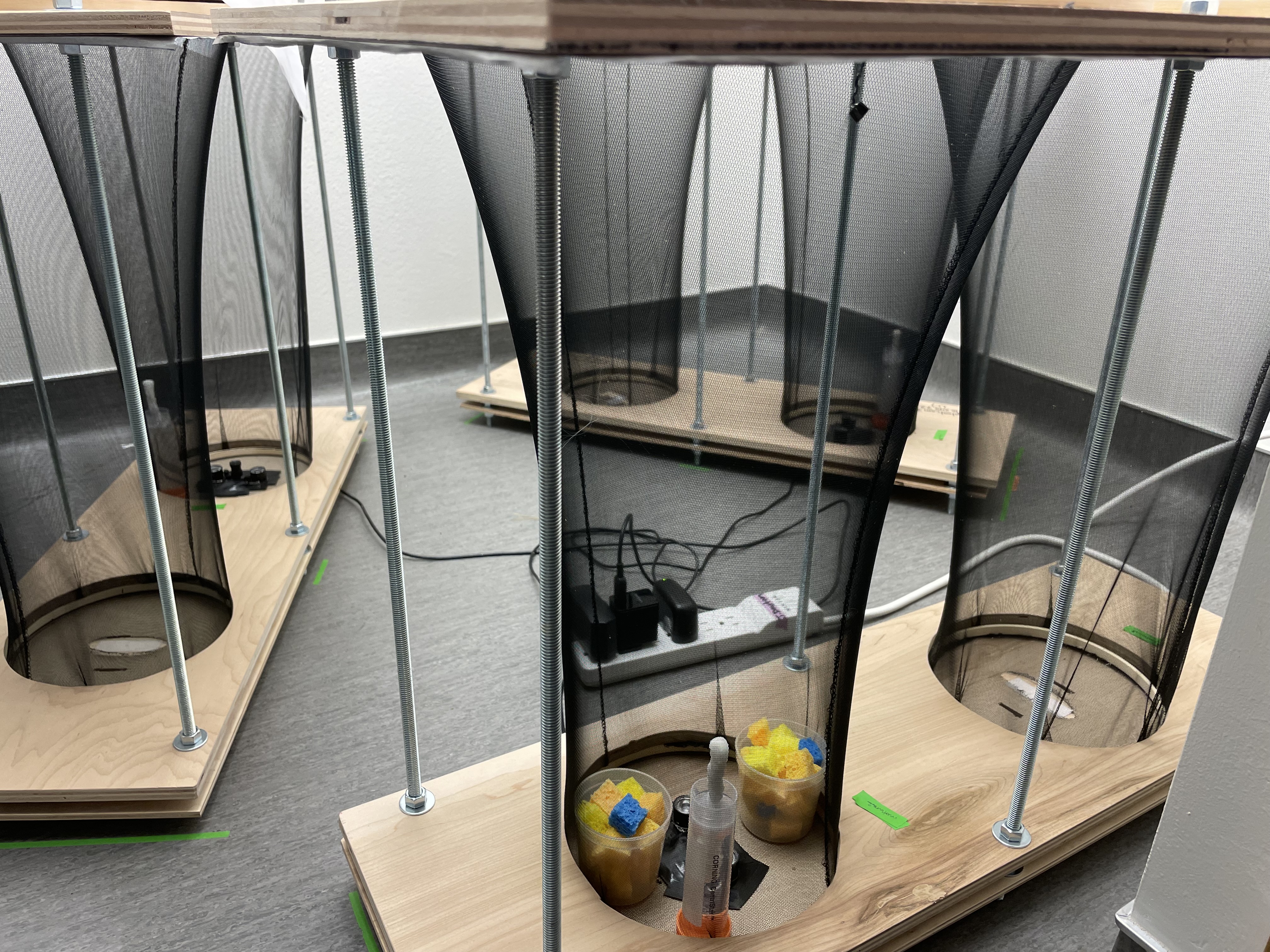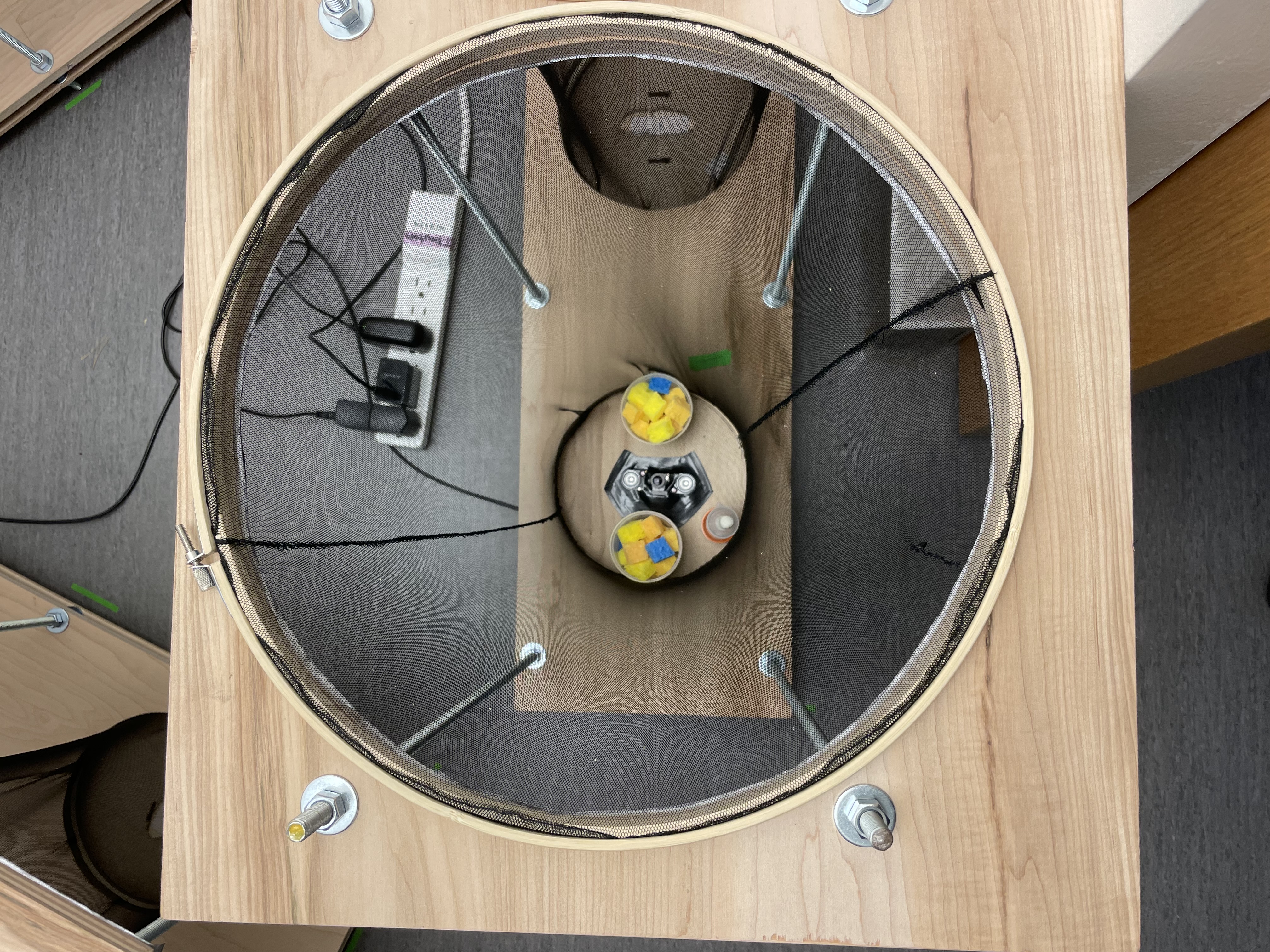2 Flight Cage Construction
The paired iLAM flight cages described in our original publication used the following materials:
| Item | Function | Units/Setup |
|---|---|---|
| Black mosquito head net mesh big size, 6.69” x 3.94” x 1.38” | Cage | 2 |
| Wooden embroidery hoop, 14” | Cage | 4 |
| Wooden embroidery hoop, 8” | Cage | 2 |
| Hardwood plywood, 1/2” x 4’ x 8’ | Structure | 0.25 |
| Steel threaded rod, 3/8”-16 x 2’ | Structure | 6 |
| Steel hex nut, 3/8”-16 | Structure | 36 |
| Steel washer, 3/8” | Structure | 36 |
| No See Um fiberglass mesh screening, 36” x 25’ | Cover | 0.04 |
| Falcon tube, 50mL | Water | 2 |
| Braided cotton roll, 4” | Water | 2 |
| Sponge | Water | 2 |
| Raspberry Pi Zero W | Computer | 2 |
| Raspberry Pi Zero W Case | Case | 2 |
| Raspberry Pi Zero W camera module night vision w/ 3.6mm, 2pcs IR sensor LED light | Camera | 2 |
| SanDisk Ultra 32GB microSD card | Memory | 2 |
| Micro USB charging cord/block | Power | 2 |
All materials were purchased from local hardware stores, art supply chains, Raspberry Pi suppliers, and Amazon
The three cage levels were made with the following cuts:
- Top: 31 1/2” x 10 1/2”
- Two Circles: 13 3/8” diameter (<14” hoop)
- Bottom: 31 1/2” x 10 1/2”
- Two Circles: 7 1/2” diameter (<8” hoop)
- Hole for camera ribbon
- Base: 31 1/2” x 10 1/2”

Figure 2.1: iLAM flight cage: front view

Figure 2.2: iLAM flight cage: top-down view
Tips:
- To increase the lifespan of experimental insects and the experiment’s recording duration, add cups with moist sponges and a falcon tube with a cotton roll and water (held by Velcro)
- To prevent escape by small experimental insects (e.g., Photinus species), add duct-tape around the camera ribbon cable hole and camera
- Depending on the color that the study insect appears under infrared light (i.e., white vs. black appearance), change the background of the lid to maximize contrast
- To minimize differences in the photographed light environment throughout light:dark/dark:light transitions, we now:
- Cover the Raspberry Pi’s light sensors with black duct tape or plastic; this “tricks” the Pi to keep it’s infrared lights on 24/7
- Cover the Raspberry Pi’s camera lens with a longpass filter that only permits infrared light to the camera
- Optional add-ons: Realtime clock (RTC) module